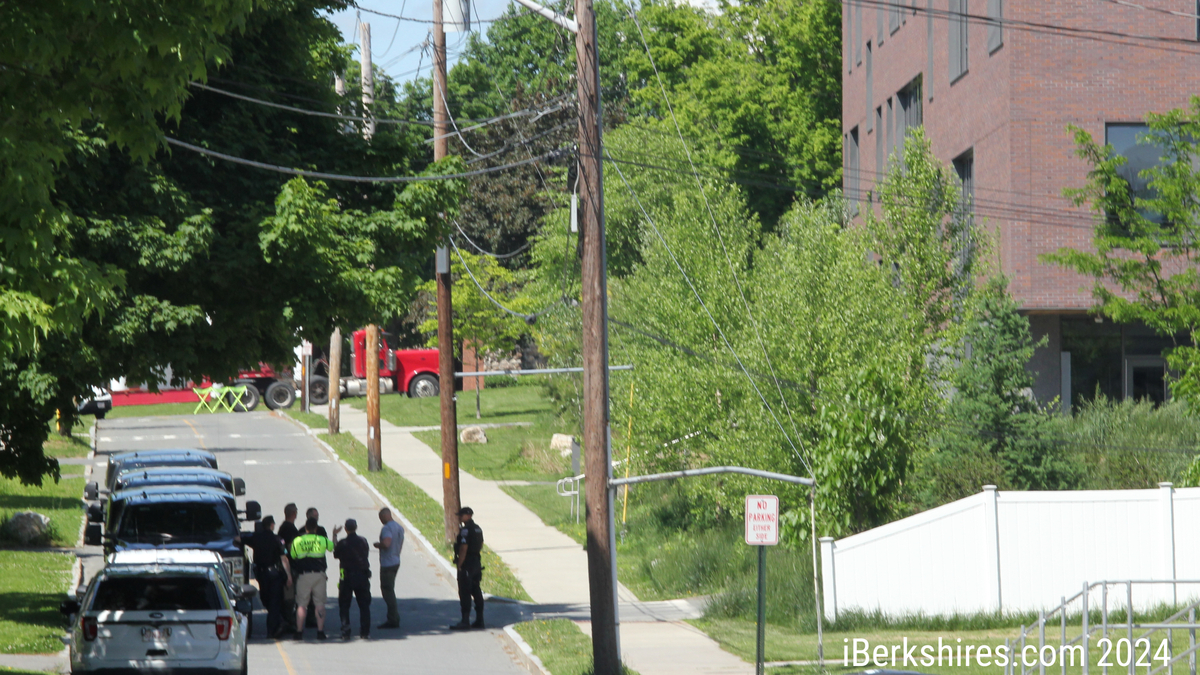
Williamstown Fire and Northern Berkshire EMS stood by at the scene during the investigation of a suspicious package at Williams College's Wachenheim Science Center on Thursday.
WILLIAMSTOWN, Mass. — A suspicious package that caused the evacuation of Williams College's Wachenheim Science Center on Thursday has been determined to be not dangerous.
A post on the college website at 4 p.m. stated the "device was determined not to be a bomb or other danger."
The college said all buildings, residences and streets are reopened that no further updates will be made.
In a message to the Williams community, President Maud Mandel said she could not speak to some particulars.
"There are limits on what I can share due to the fact that police are continuing to investigate and some facts simply are not known to us," she wrote.
Mandel said a package was delivered just after noon to Wachenheim and the person who opened it immediately called campus safety, who called both the Williamstown Police and Fire Departments.
"The nature and purpose of its contents were unclear and concerning to the people involved," said the president. "As a precaution, we promptly evacuated all academic buildings, residences and streets within a set perimeter. Given that we could not rule out the possibility that the contents were dangerous, the state bomb squad was called in.
"This is a precautionary measure built into our standard safety protocols for such situations."
Hoxsey Street was blocked off by the Police Department and an alarm had been sounding in the neighborhood since at least 1:30 p.m.
The State Police Bomb Squad arrived shortly before 3 p.m. and the alarms were shut off about 3:42 p.m. when the squad gave the all-clear.
A post on the college website said its ability to work with authorities and follow protocols "enabled prompt resolution" of the matter. Mandel said people were allowed to re-enter the buildings once the package was determined to be safe.
She said there is no information indicating a threat to people at Williams and no basis for speculating on the source or intent of the package.
Anyone with information that might be relevant should contact the Williamstown Police at 413-458-5733 or Campus Safety at 413-597-4444.
Mandel expressed gratitude to the people whose "quick actions triggered our response" and to Campus Safety and local law enforcement and emergency responders.
"We are making resources available to anyone in our community who needs them after today's events and messages," she said. "If you or someone you know wants support, please reach out to Integrative Wellbeing Services, the chaplains, the cans, OIDEI, or any faculty or staff member to whom you feel comfortable talking. We are all here to help."
The college is wrapping up the spring semester and commencement is set June 2.



